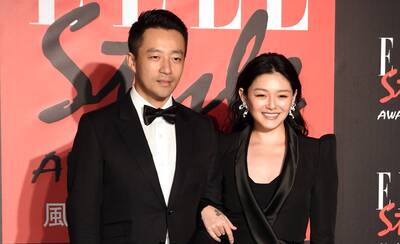《TAIPEI TIMES》 ‘Consensus’ not the solution: minister

Mainland Affairs Council Minister Chen Ming-tong talks to reporters at a news conference in Taipei yesterday. Photo: CNA
FALSE CLAIM? Chen Ming-tong said former president Ma Ying-jeou did not mention ‘different interpretations’ during a meeting with Chinese President Xi Jinping in 2015
By Stacy Hsu / Staff reporter
Acceptance of the so-called “1992 consensus” is not the answer to Taiwan’s diplomatic setbacks, Mainland Affairs Council (MAC) Minister Chen Ming-tong (陳明通) said yesterday, adding that the government plans to introduce new policies in addition to tightening its screening of applications by Chinese officials to visit Taiwan.
Chen made the remarks at an afternoon news conference in Taipei, hours after a number of Chinese Nationalist Party (KMT)-friendly experts attributed Burkina Faso’s decision to cut ties with Taiwan to President Tsai Ing-wen’s (蔡英文) refusal to acknowledge the “1992 consensus” — a line usually adopted by the pan-blue camp when it comes to the Tsai administration’s diplomatic predicament.
Burkina Faso on Thursday became the fourth diplomatic ally the nation has lost since Tsai’s inauguration in May 2016, after Sao Tome and Principe in December 2016, Panama in June last year and the Dominican Republic on April 30.
“Will accepting the ‘1992 consensus’ solve the problem? Some blamed the losses of diplomatic allies on [the government’s] failure to accept the ‘1992 consensus,’ but what is the ‘1992 consensus’? Does it really allow for different interpretations of what ‘China’ means?” Chen said.
The “1992 consensus,” a term former MAC chairman Su Chi (蘇起) in 2006 admitted making up in 2000, refers to a tacit understanding between the KMT and the Chinese Communist Party that both sides of the Taiwan Strait acknowledge there is “one China,” with each side having its own interpretation of what “China” means.
However, Beijing has not acknowledged the “different interpretations” part and has only mentioned the “one China” element in its references to the “1992 consensus.”
While the KMT has repeatedly pressured Tsai to embrace the “1992 consensus,” not even its own members have dared to do so publicly in front of Beijing, Chen said.
He said that according to his understanding, former president Ma Ying-jeou (馬英九) did not mention the “different interpretations” part as he had claimed during his historic closed-door meeting with Chinese President Xi Jinping (習近平) in Singapore in 2015.
“Ma’s omission surprised then-MAC minister Andrew Hsia (夏立言) and other participants at the meeting,” Chen said.
The “1992 consensus” was not what prompted Beijing’s diplomatic oppression of Taiwan, but rather its ultimate goal of unification, which Chen said the KMT is helping China achieve by humming to its tune.
“The opposition party has said whatever Beijing wants it to say, be it the ‘1992 consensus’ or ‘unification.’ What can Taiwan get out of all this?” Chen said, referring to KMT Chairman Wu Den-yih’s (吳敦義) remarks at a party meeting on Tuesday that the nation’s ultimate goal is unification, citing the Constitution.
The remarks marked a departure from Wu’s previous stance on the issue, as he used to cite the “1992 consensus” as the cornerstone of his cross-strait policy.
Chen said that due to the current situation across the Taiwan Strait, in addition to rigorously screening applications by Chinese officials to visit Taiwan, the council would soon release a series of new policies.
However, he stopped short of providing any details.
新聞來源:TAIPEI TIMES














